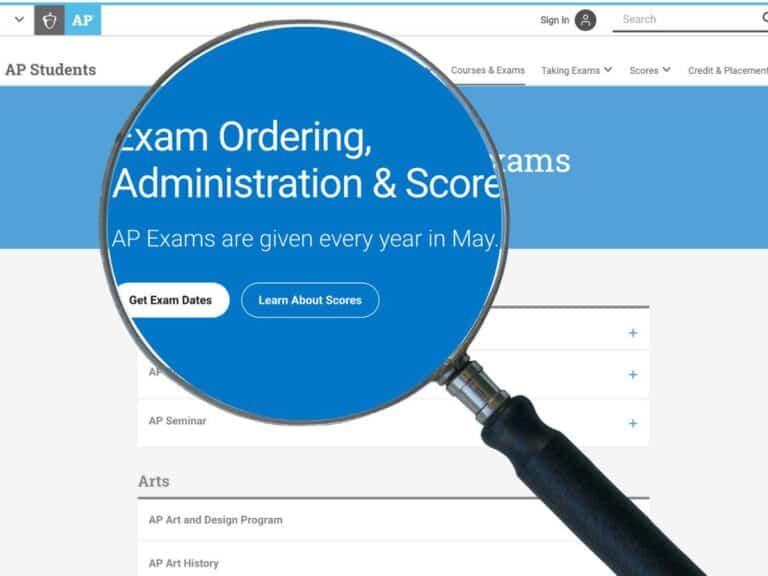How to Leverage Your Honors and Awards for College Admission
How to Leverage Your Honors and Awards for College Admission
The Common App and Coalition App are two different college application platforms.
While they have differences, ranging from the number of colleges and universities they are partners with to the socioeconomic backgrounds of their target applicants, they also have some similarities.
One of the things they share is that both have an Honors section.
Simply put, it’s in the Honors section where you can indicate the various academic honors and awards you received throughout your high school career, each one adding value to your application.
Each and every applicant’s academic distinction matters in the college admissions process.
Collectively, they are a testament that a college-bound teen shines inside the classroom, although it doesn’t necessarily mean that excelling outside the classroom doesn’t matter.
Extracurricular achievements count, too!
While academic honors and awards alone won’t make or break your college application, they can help make you become a complete standout in a pool of high-achieving candidates, particularly if you leverage them properly.

Honors vs. Activities: What’s the Difference?
Both curricular and extracurricular activities have a special place in a college application.
It doesn’t matter whether you are applying to your top-choice institution through the Common App or Coalition App or via a proprietary online application the school uses.
However, you must place them in the right areas in order to make them count.
Academic awards in high school should go in the provided Honors section, while extracurricular participation or achievements should go in the supplied Activities section.
Non-Academic Honors and Awards
As the name suggests, non-academic achievements have nothing to do with academics.
They are those you obtain or achieve by participating in extracurricular activities and excelling in them.
Honors and awards earned outside the high school curriculum can come from various sources, depending on the endeavors that have resulted in you getting your hands on them.
Are awards important for college, even if they’re the non-academic kinds?
They sure are important in the college admissions process!
Participating in various extracurricular activities and being outstanding in them, too, demonstrates having interests and passion and the possession of certain skills, many of which you need to attain success in college and beyond.
From leadership skills to community involvement, non-academic pursuits make you a well-rounded student.
It’s in the Activities section of the college application form where they should go.
The Common App provides as many as ten spots for your extracurriculars, while the Coalition App provides only room for eight — either way, there’s usually more than enough space available.
Academic Honors and Awards
A formal recognition directly related to your secondary education is an academic honor or award.
Some high schools or people refer to them as scholastic honors or awards.
Honors and awards fall under the academic kind if you won or obtained them as a result of your outstanding educational performance or participation.
Some of them end up on your high school transcript.
A GPA award or high-class ranking award often appears on a student’s transcript. In many instances, being a dean’s lister also results in its notation on the transcript.
Here are some examples of academic honors and awards based on type:
- Honor. In most instances, an honor or honorable mention comes in the form of a title. It may or may not come with a physical validation such as a medal, certificate, or cash prize.
- Certificate. An academic distinction may sometimes result in the awardee receiving a certificate or diploma, which indicates one’s completion or participation in an academic pursuit like an internship or lecture.
- Awards. Excelling in an academic competition, from a chemistry olympiad to a robotics match, often leads to the receipt of a prize such as a medal, badge, trophy, or check.
- Membership. It’s not uncommon for selective academic societies to accept only high-performing high schoolers who meet certain criteria, resulting in their membership in those organizations.
- Scholarship. Any academic scholarship a teen wins for demonstrating excellence in certain subjects or skills makes for a wonderful addition to a high school student’s list of scholastic accolades.
Academic honors and awards can come from various sources.
Some of them, such as a high GPA award or academic star, are high-school based, while others can be on a national or international level, which are some of the most prestigious of all academic distinctions.

Including Academic Honors and Awards in the Application
Earning scholastic honors and awards is no easy feat.
Getting your hands on them requires a lot of discipline and commitment and, in most instances, several months or years of hard work until the high school or another entity formally recognizes one’s labor.
For many, deciding which academic distinctions to include in their college application is harder than it sounds.
Having, say, one or three should not be a problem.
The Common App and Coalition App provide five spaces for academic honors and awards, which means that including all merits amounting to five or fewer is definitely a good idea to make your application more competitive.
However, the process can be confusing for high school teens with more than five of those.
Academic Awards That Look Good on College Applications
Did you get numerous academic medals, certificates, and memberships?
Congrats!
Their mere mention can grab the attention of college admissions officers, making you a strong candidate for having one of the available spots in the incoming freshman class.
However, it’s worth noting that while all honors are awesome, some are more spectacular than others.
In deciding which of your multiple scholastic awards to include in your college application, consider giving the available space to some of the most prestigious ones.
There’s a great way to tell whether or not an award is prestigious:
- If only a few high schoolers receive it
- If the organization that awards it is selective
- If it’s on a national and international level
Of course, you are proud of every academic honor under your belt because you worked hard to win them, which is why you would love to enumerate all 10 or 20 of them on your application if you could.
That’s what the Additional Information section of the Common App or Coalition App is for.
But don’t include academic honors and awards for the sake of bragging about them.
Use the Additional Info section wisely — only enumerate those that you think college admissions officers must definitely know about to give them an idea of your capabilities and what you can contribute to the campus community.
Adding Academic Awards to the Honors Section
Because you are limited to only five scholastic distinctions, use the Honors section wisely.
Refrain from adding college awards randomly.
There’s a right way to decide which academic honors and awards to put on a college application and, more importantly, there’s a recommended manner through which to list them.
As mentioned, go for the most prestigious ones you received.
However, some prestigious honors and awards are more phenomenal than others.
To determine which ones should go to the top of the list, consider how broad the scope of the recognition is — the broader the scope, the more excellent the award.
Remember to list your achievements in this order:
- National or international
- State or regional
- Local
- High school-wide
I cannot stress enough the importance of providing information for each honor you include.
There is a 100-character limit when it comes to describing an academic honor or award, which is why you should maximize what little space is available to make your description impactful.
Instead of using complete sentences, opt for phrases.
Go for figures instead of spelled-out numbers.
As much as possible, refrain from using acronyms and abbreviations, especially if the scholastic distinction you are describing is not that popular, such as in the case of local and high school-wide ones.
Disclaimer: The views and opinions expressed in this article are those of the authors and do not necessarily represent those of the College Reality Check.


![How to Express Interest in a College [12 Neat Hacks]](https://collegerealitycheck.com/wp-content/uploads/di-visit-college-684111754-768x576.jpeg)


